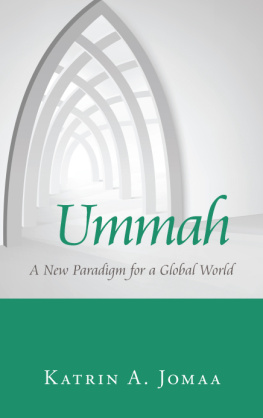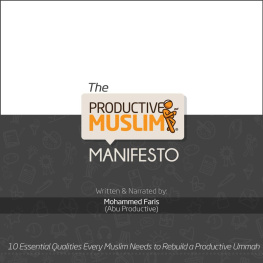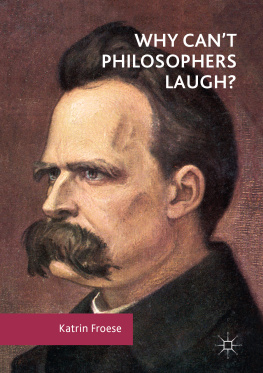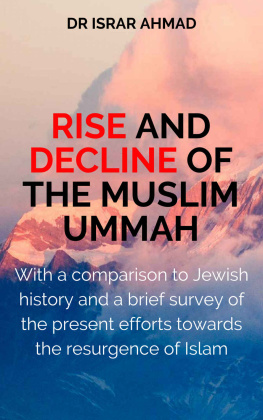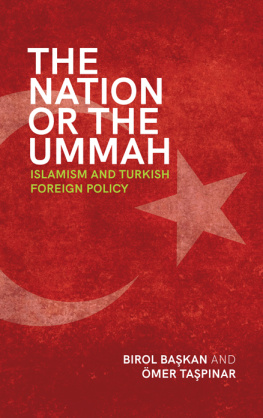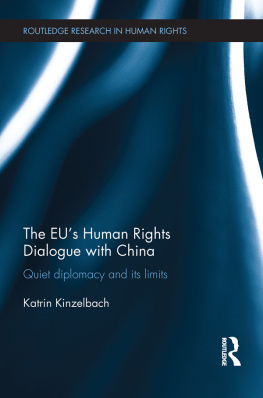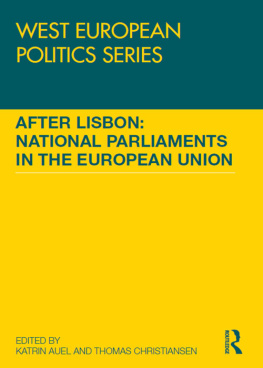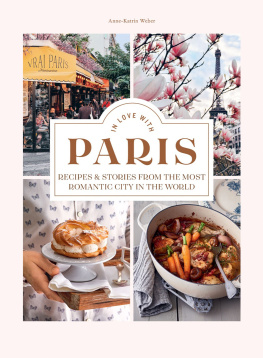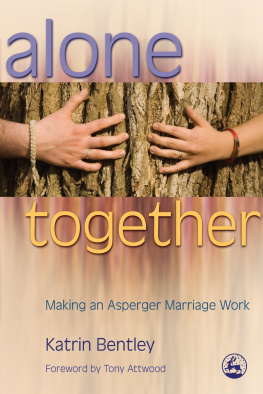Katrin A. Jomaa - Ummah
Here you can read online Katrin A. Jomaa - Ummah full text of the book (entire story) in english for free. Download pdf and epub, get meaning, cover and reviews about this ebook. year: 2021, publisher: State University of New York Press, genre: Religion. Description of the work, (preface) as well as reviews are available. Best literature library LitArk.com created for fans of good reading and offers a wide selection of genres:
Romance novel
Science fiction
Adventure
Detective
Science
History
Home and family
Prose
Art
Politics
Computer
Non-fiction
Religion
Business
Children
Humor
Choose a favorite category and find really read worthwhile books. Enjoy immersion in the world of imagination, feel the emotions of the characters or learn something new for yourself, make an fascinating discovery.
- Book:Ummah
- Author:
- Publisher:State University of New York Press
- Genre:
- Year:2021
- Rating:3 / 5
- Favourites:Add to favourites
- Your mark:
- 60
- 1
- 2
- 3
- 4
- 5
Ummah: summary, description and annotation
We offer to read an annotation, description, summary or preface (depends on what the author of the book "Ummah" wrote himself). If you haven't found the necessary information about the book — write in the comments, we will try to find it.
Ummah — read online for free the complete book (whole text) full work
Below is the text of the book, divided by pages. System saving the place of the last page read, allows you to conveniently read the book "Ummah" online for free, without having to search again every time where you left off. Put a bookmark, and you can go to the page where you finished reading at any time.
Font size:
Interval:
Bookmark:
Ummah
Ummah
A New Paradigm for a Global World
K ATRIN A. J OMAA

Published by State University of New York Press, Albany
2021 State University of New York
All rights reserved
Printed in the United States of America
No part of this book may be used or reproduced in any manner whatsoever without written permission. No part of this book may be stored in a retrieval system or transmitted in any form or by any means including electronic, electrostatic, magnetic tape, mechanical, photocopying, recording, or otherwise without the prior permission in writing of the publisher.
For information, contact State University of New York Press, Albany, NY
www.sunypress.edu
Library of Congress Cataloging-in-Publication Data
Name: Jomaa, Katrin A., author.
Title: Ummah : a new paradigm for a global world / Katrin A. Jomaa, author.
Description: Albany : State University of New York Press, [2021] | Includes bibliographical references and index.
Identifiers: ISBN 9781438482057 (hardcover : alk. paper) | ISBN 9781438482064 (ebook)
Further information is available at the Library of Congress.
10 9 8 7 6 5 4 3 2 1
To Prophet Mohammad and his family, with love

I dedicate this work to every human being who struggles and
hopes for a just, integrated, and peaceful world
For seekers of truth and lovers of wisdom wherever they find it
O humankind, indeed We have created you from male and female and made you peoples and tribes that you may know one another. Indeed, the most noble among you in the sight of God is the best in conduct (most pious). Indeed, God is All-knowing and All-aware. (Qurn 49:13)
Political society exists for the sake of noble actions, and not of living together. Hence they who contribute most to such a society have a greater share in it than those who have the same or a greater freedom of nobility of birth but are inferior to them in political excellence; or than those who exceed them in wealth but are surpassed by them in excellence.
Let there be from among you (minkum) an Ummah inviting to goodness (khayr) and enjoining righteousness and deterring wrongness (yamurna bil-marf wa yanhawna an al-munkar) and those are the successful. (Qurn 3:104)
Imm Ali says: He who has a despotic opinion will perish and he who consults men shares with them their minds.
To each among you, We have prescribed a law and a clear way (shiratan wa minhjan). If Allah willed, He would have made you one ummah, but that (He) may test you in what He has given you; so strive as in a race in all virtues. The return of you (all) is to Allah; then He will inform you about that in which you used to differ. (Qurn 5:48)
My sense is that multicultural societies can be held together by a political culture, however much it has proven itself, only if democratic citizenship pays off not only in terms of liberal individual rights and rights of political participation but also in the enjoyment of social and cultural rights. The citizens must be able to experience the fair value of their rights in the form of social security and the reciprocal recognition of different cultural forms of life.
. Aristotle, Politics (1281a 38).
. Ali Bin Ab lib, Nahju-l-Balgha, Sermon 161, ed. Muhammad Abduh (Beirut: Muassasat al-Alam lil-Mabt, 2003), 500.
. Jurgen Habermas, The European Nation-State: On the Past and Future of Sovereignty and Citizenship, 409.
Contents
Chapter 1
Conceptual Meaning of Ummah in the Meccan Verses of the Qurn
Chapter 2
Ummah in the Medinan Verses of the Qurn
Chapter 4
The Ummah and Political GovernanceComparative
Illustrations
Acknowledgments
I am very grateful to God for giving me the patience to learn and complete this project, and for putting in my way the gifted teachers and enlightened scholars who help us open new horizons in our thinking process.
I am indebted to Professor Aurelian Craiutu, whose encouragement and enthusiasm inspired me to carry out this project.
A special word of gratitude to Professor Maria Dakake for her generosity and her time reading and thoroughly editing this manuscript in its initial stage. Her suggestions and advice helped me better organize the book and enriched its content. I am also very thankful to all those who gave their time to read or edit this book and whose valuable feedback and contributions made this book richer. Special thanks to Professor Abdulaziz Sachedina, Professor Khaled abou el-Fadl, Professor Asma Afsaruddin, Professor John Walbridge, Professor Cyrus Zargar, Professor Cheryl Foster, Aisha Sharif, Levin Arnsperger, and Daniel Shorr.
Finally, I would like to acknowledge with gratitude the support of my familymy parents, the most intriguing people ever; my mother, Zein; my father, Abdo; and my siblings, whose prayers kept me going. I would also like to acknowledge my loving and supportive husband, Mohammad, who encouraged me to push through the final stages of editing this book and for our valuable discussions, which helped me refine many ideas and in this book.
Introduction
Purpose and Focus of the Book
What alternatives are there to the current global order, competing nation-states within a dominant economic and political order in which powerful nations thrive on the remnants of weaker ones? Sovereign nation-states tightly secure their borders against the alien other. Diversity, whether racial, ethnic, or religious, is deemed a threat against a peaceful order governed by a central power. Tolerance and pluralism are celebrated as long as they dont intervene with the integrity and power of the state. Controlled inclusion of diversity within nation-states creates politics of the visual, constructing images of pluralism rather than a serious engagement with diverse political actors.
This book attempts to explore an alternative sociopolitical unit to the nation-statenamely, the ummah, based on the Qurn and prophetic Sunnah. Inspired by the Qurn, the foundational source for Islamic thought, it first pursues a meticulous analysis of the word ummah in the Qurn. Historically before the rise of the modern nation-state, the ummah signified a pluralistic society that stretched over large areas and had a political leadership. In the modern period, ummah was reduced to signifying a Muslim community on a national level or an imagined community on a transnational level. Qurnic interpretation is always affected by the historical context of the exegetes time. The Qurnic hermeneutical reinterpretation in this research operates in two parallel trajectories. First, considering the importance of historical context, this book consults both selected premodern and modern scholars and compares their discussion of single Qurnic verses about the ummah before and after the rise of the nation-state. This takes into account how the historical context might have affected Muslims understanding and conceptualization of the ummah. The comparison reveals the merits and shortcomings of potential conceptualizations of ummah. However, this is not a historiography of the ummah and how the concept evolved over time; hence medieval scholars are not consistently consulted. The latter would constitute a book by itself and is beyond the scope of this research. The focus of this book is developing a workable definition of the ummah that could be compared with the nation-state, hence engaging in modern constructive Muslim political theology. The aim of focusing on the primary sources, the Qurn and the Sunnah, as the main sources to decipher the meaning of
Next pageFont size:
Interval:
Bookmark:
Similar books «Ummah»
Look at similar books to Ummah. We have selected literature similar in name and meaning in the hope of providing readers with more options to find new, interesting, not yet read works.
Discussion, reviews of the book Ummah and just readers' own opinions. Leave your comments, write what you think about the work, its meaning or the main characters. Specify what exactly you liked and what you didn't like, and why you think so.

